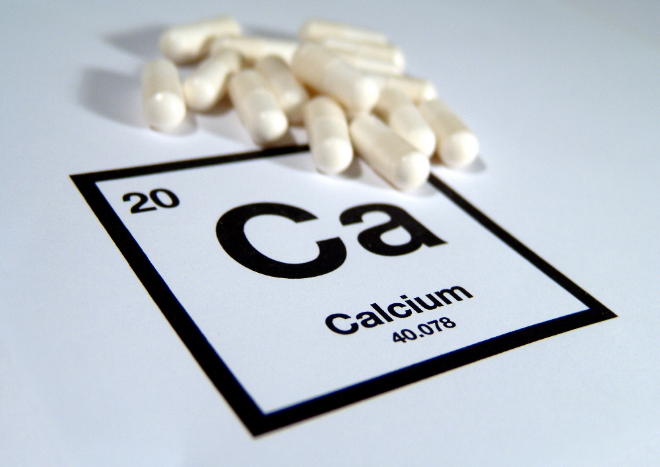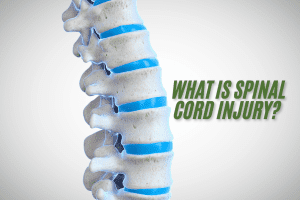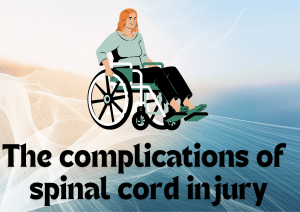
By Scihealthhub – January 10, 2025
In this guide, we’ll explore the top 10 expert-recommended supplements for individuals with spinal cord injuries (SCIs), their benefits, and how they can support overall health and well-being.
Nutrition experts emphasize the importance of consuming a healthy diet rich in fruits, vegetables, whole grains, lean proteins, and healthy fats to meet daily requirements for essential nutrients such as vitamins, minerals, and fiber.
However, the reality for many is that maintaining such a diet can be challenging, especially for individuals with spinal cord injury. Research indicates that many individuals with spinal cord injuries tend to eat diets that are low in fruits, vegetables, and whole grains (1).
Also, spinal cord injuries often result in numerous secondary health complications that can affect an individual’s quality of life, including muscle weakness, chronic neuropathic pain, loss of bone density, impaired immune function, inflammation, and fatigue.
The right supplements, when taken in the appropriate dosage, can help bridge nutritional gaps, improve overall health, support recovery and help manage secondary complications associated with spinal cord injury.
Recognizing their increased vulnerability to chronic diseases and secondary health complications, individuals with spinal cord injuries are more likely to use supplements, with 51% incorporating them into their routine compared to 27% of the able-bodied population (2).
Top Supplements for Spinal Cord Injury
1. Omega-3 Fatty Acids

Benefits:
Omega-3 fatty acids are essential fats that offer multiple benefits for individuals with spinal cord injuries. They are known to:
Promote nerve regeneration: Omega-3s, particularly eicosapentaenoic acid (EPA) and docosahexaenoic acid (DHA), play a vital role in repairing damaged nerve cells and enhancing neural plasticity, which is crucial for recovery.
Reduce inflammation: Inflammation is a common issue following spinal cord injuries, and omega-3s help suppress inflammatory pathways, mitigating pain and secondary complications.
Support heart health: People with spinal cord injuries face an increased risk of cardiovascular disease due to reduced mobility. Omega-3s help lower triglyceride levels, stabilize heart rhythms, reduce blood pressure, and prevent blood clots, thereby offering robust cardioprotective effects.
Dosage:
The typical recommended dosage is 1,000–2,000 mg of combined EPA and DHA per day, but this can vary based on individual health needs.
2. Vitamin D

Benefits:
Vitamin D is essential for maintaining bone health and overall wellness, particularly for individuals with spinal cord injuries who are at an increased risk of osteoporosis and fractures due to limited mobility. Its benefits include:
Supporting Bone Health: Vitamin D helps regulate calcium and phosphorus absorption, which are essential for building and maintaining strong bones. Without adequate vitamin D, bones can become thin, brittle, and prone to fractures, especially in individuals with reduced weight-bearing activities.
Enhancing Muscle Function: Vitamin D plays a role in muscle strength and coordination, which can help improve mobility and reduce the risk of falls and injuries in individuals with some functional movement.
Boosting Immune Function: Vitamin D supports the immune system, helping to reduce the risk of infections, which are common secondary complications in spinal cord injury.
Reducing Inflammation: Chronic inflammation is a concern for individuals with spinal cord injuries, and vitamin D has anti-inflammatory properties that can help mitigate this issue.
Dosage:
The recommended dosage of vitamin D varies depending on individual deficiency levels and specific health needs:
General supplementation: 600 to 800 IU per day, which is adequate for most people.
For those with deficiencies: Higher doses may be prescribed by a healthcare provider but avoid taking more than 4,000 IU per day, which is considered the safe upper limit.
3. Vitamin B Complex

Vitamin B complex consists of a group of eight B vitamins, including thiamine (B1), riboflavin (B2), niacin (B3), pantothenic acid (B5), pyridoxine (B6), biotin (B7), folic acid (B9) and cobalamin (B12).
Benefits:
These vitamins are important for:
Nerve repair and regeneration: Making them particularly beneficial for individuals with spinal cord injuries. They play a role in maintaining myelin, the protective sheath around nerves, and support the production of neurotransmitters, which are vital for communication between nerve cells.
Cardiovascular Health: B vitamins like B6, B9, and B12 may help regulate homocysteine levels, which can decrease the risk of cardiovascular disease (CVD).
Digestive Support: Promotes a healthy digestive system by assisting in the breakdown and metabolism of fats, proteins, and carbohydrates. Also, helps to build a healthy appetite.
Energy Boost: B vitamins play a key role in converting the food we eat into the energy we need, helping to combat fatigue and maintain energy levels.
Red Blood Cell Formation: Vitamins B6, B9, and B12 are vital for the synthesis of red blood cells, which carry oxygen throughout the body.
Healthy Skin: Biotin (B7) and other B vitamins contribute to keeping healthy skin.
Dosage:
Generally, the recommended daily dosages for adults are:
Thiamine (B1): 1.1-1.2 mg
Riboflavin (B2): 1.1-1.3 mg
Niacin (B3): 14-16 mg
Pantothenic Acid (B5): 5 mg
Pyridoxine (B6): 1.3-1.7 mg
Biotin (B7): 30 mcg
Folate (B9): 400 mcg
Cobalamin (B12): 2.4 mcg
4. Magnesium

Benefits:
Magnesium is a vital mineral that plays a key role in over 300 biochemical reactions in the body. For individuals with spinal cord injury, magnesium offers several benefits:
Muscle Spasm Relief: Muscle spasms are a common issue for people with spinal cord injury. Magnesium helps relax muscles by acting as a natural calcium blocker, preventing excessive contraction.
Bone Health: Magnesium works synergistically with calcium and vitamin D to maintain bone density and reduce the risk of osteoporosis, a frequent complication in individuals with limited mobility.
Nerve Function: Magnesium supports the transmission of nerve signals, which is crucial for maintaining any remaining neural pathways and preventing additional complications.
Energy Production: Magnesium aids in converting food into energy, which can help improve overall vitality and reduce fatigue.
Dosage:
The recommended daily dose for adults is 300mg a day for men and 270mg a day for women.
5. Calcium

Benefits:
Adequate calcium intake is essential for maintaining bone density and strength, especially in individuals with spinal cord injury, who are at an increased risk of developing osteoporosis and fractures due to reduced mobility and weight-bearing activities.
Calcium absorption is significantly improved when combined with sufficient vitamin D intake. Consider pairing calcium supplements with vitamin D for better results.
Calcium supplements: The two most common and most recommended forms of calcium supplements are calcium carbonate and calcium citrate. Other forms of calcium supplements include calcium gluconate and calcium lactate.
Dosage:
The recommended daily intake of calcium for adults with spinal cord injury is typically 1,000–1,200 mg daily, split into two or more doses over the day. Avoid taking high doses at once, as the body absorbs calcium more efficiently in smaller amounts (e.g., 500 mg or less per dose).
6. Antioxidants

Benefits:
Antioxidants are important for neutralizing free radicals, which are unstable molecules that can damage cells and tissues.
After a spinal cord injury, free radicals often increases due to inflammation and tissue damage, which can impede recovery.
By mopping up free radicals, antioxidants support cellular repair and promote a healthier recovery environment.
They also help reduce inflammation and may improve nerve function, which is particularly beneficial for individuals with spinal cord injuries.
Antioxidants can enhance overall recovery efforts, reduce secondary complications, and support long-term health in spinal cord injury individuals.
Examples: Common examples of powerful antioxidants include Vitamin C, Vitamin E, green tea extract and resveratrol.
Supplement Blends: Many high-quality supplements provide antioxidant combinations that include vitamins C and E with other powerful antioxidants.
7. Ginkgo Biloba

Ginkgo biloba is a natural supplement derived from the leaves of the ginkgo tree.
Benefits:
Neuroprotection: Ginkgo biloba may help repair spinal cord injuries by reducing inflammation, protecting important nerve cells, and preventing cell death in the spinal cord (5).
Improved Blood Flow: Ginkgo biloba enhances blood circulation by dilating blood vessels and reducing platelet aggregation, which can help deliver oxygen and nutrients to damaged tissues. This improved blood flow may support nerve health and aid in the recovery process.
Cognitive Support: Ginkgo biloba is often used to support brain health and may improve memory, focus, and mental clarity.
Dosage:
The recommended dosage of ginkgo biloba is 120–240 mg daily, divided into two doses (e.g., 60–120 mg per dose). It is best taken with meals to improve absorption and reduce the risk of side effects such as stomach upset.
8. Coenzyme Q10 (CoQ10)

Coenzyme Q10 (CoQ10) is a vital compound naturally produced by the body and found in every cell, particularly in the mitochondria, where energy production occurs.
Benefits:
For individuals with spinal cord injuries, CoQ10 offers several potential benefits:
Energy Production: CoQ10 plays a key role in the production of adenosine triphosphate (ATP), the main energy source for cells. This boost in cellular energy can support tissue repair and overall recovery.
Antioxidant Properties: CoQ10 is a powerful antioxidant that helps neutralize free radicals, reducing oxidative stress and preventing further damage to cells and tissues after injury.
Neuroprotection: CoQ10 may protect nerve cells from damage and support their function, which is beneficial for individuals with spinal cord injuries aiming to preserve or regain neurological function.
Improved Cardiovascular Health: It promotes healthy circulation by supporting heart and vascular function, ensuring that oxygen and nutrients reach the areas needing repair.
Dosage:
The recommended dosage of CoQ10 is 100–200 mg daily, taken with a meal containing fat to improve absorption since CoQ10 is fat-soluble.
9. Amino Acids

Amino acids are the building blocks of proteins, which play an essential role in tissue repair, muscle maintenance, and overall recovery.
Benefits:
For individuals with spinal cord injuries, amino acids provide specific benefits:
Tissue Repair and Wound Healing: Amino acids like glutamine and arginine are crucial for repairing damaged tissues and promoting wound healing, which is particularly important for managing pressure sores and surgical recovery.
Muscle Maintenance: Spinal cord injuries can lead to muscle atrophy due to reduced activity. Branched-chain amino acids (BCAAs) such as leucine, isoleucine, and valine help preserve muscle mass and support protein synthesis, preventing further deterioration.
Improved Immune Function: Amino acids like glutamine enhance immune function, reducing the risk of infections that are common in individuals with spinal cord injuries.
Neuroprotection: Amino acids such as taurine and glycine have neuroprotective properties, supporting nerve function and potentially aiding in neural repair.
Energy Production: Amino acids are involved in producing energy and reducing fatigue, which is vital for physical therapy and daily activities.
Dosage:
The dosage of amino acid supplements depends on the specific type and purpose:
BCAAs: 5–10 grams daily, often taken before or after physical activity to support muscle maintenance.
Glutamine: 5–15 grams daily, typically divided into two or three doses, to promote tissue repair and immune health.
Arginine: 6–10 grams daily, taken in divided doses, to support wound healing and circulation.
10. Probiotics

Probiotics are live beneficial bacteria that support gut health and overall well-being. For individuals with spinal cord injuries, maintaining a healthy gut microbiome is essential due to the increased risk of digestive issues and infections.
Benefits:
Improved Digestive Health: Probiotics help balance the gut microbiome, reducing the risk of constipation, diarrhea, and bloating—common issues after spinal cord injuries.
Enhanced Immune Function: Since a significant portion of the immune system resides in the gut, probiotics strengthen immune defenses, reducing susceptibility to infections such as urinary tract infections.
Reduction in Antibiotic-Associated Side Effects: After frequent antibiotic use for treating infections, probiotics help replenish healthy gut bacteria, minimizing the risk of antibiotic-associated diarrhea or gut dysbiosis.
Improved Nutrient Absorption: A healthy gut microbiome supported by probiotics enhances the absorption of important nutrients like vitamins and minerals.
Neuroprotection: Preliminary studies suggests that maintaining a healthy gut through the consumption of probiotics can enhance recovery from spinal cord injury. Spinal cord injury has been shown to alter gut microbiome, leading to gut dysbiosis, a condition where “good” bacteria are depleted or overrun by “bad” bacteria in the gut. This condition is associated with increased inflammation and worsening of outcomes in spinal cord injuries. Probiotics ingestion can block or reverse these effects (3, 4).
Probiotic Supplements: These are available in various forms, such as capsules, powders, and liquids, containing strains like Lactobacillus and Bifidobacterium.
Dosage:
The optimal dosage of probiotics depends on the specific strain and brand but generally ranges from 1 billion to 10 billion CFUs (colony-forming units) per day.
For general gut health, start with a lower dose and gradually increase to allow your body to adjust.
Remember, it’s important to take probiotics consistently to maintain the probiotics in your gut.
Specific health issues like antibiotic recovery or severe digestive disturbances may require higher doses, as recommended by a healthcare provider.
How to Choose the Right Supplements
1. Consult a Doctor
Before introducing any new supplement into your regimen, it’s important to consult with a healthcare provider, preferably one familiar with spinal cord injury management. This ensures the supplements are safe and suitable for your specific health needs. A doctor can also help identify potential deficiencies through tests and recommend appropriate supplements to address them.
2. Check Quality
Not all supplements are created equal. Look for trusted brands that adhere to stringent manufacturing standards. Prioritize products that have undergone third-party testing, such as certifications from organizations like NSF International, USP, or ConsumerLab. These certifications indicate the supplement meets purity, potency, and quality standards, ensuring you get the intended benefits without harmful contaminants.
3. Consider Interactions
Certain supplements can interact with medications commonly prescribed for spinal cord injury, such as muscle relaxants, blood thinners, or pain relievers. For example, omega-3 fatty acids may enhance the effect of blood thinners, increasing the risk of bleeding. Discuss all medications and supplements you’re taking with your doctor to avoid harmful interactions.
4. Monitor Progress
Once you start taking supplements, it’s essential to track your progress. Keep a journal to record any changes in your health, energy levels, or symptoms. Regular follow-ups with your healthcare provider can help determine whether the supplement is effective or if adjustments to the dosage are needed. Avoid exceeding the recommended doses, as this may lead to adverse effects.
5. Prioritize Your Needs
Focus on supplements that address your most pressing health concerns, such as bone health, muscle recovery, nerve regeneration, or skin integrity.
6. Be Wary of Marketing Claims
Avoid falling for exaggerated claims like “miracle cure” or “guaranteed results.” Reliable supplements should be backed by scientific research and provide realistic benefits. Do your research or consult a healthcare provider to ensure the supplement’s claims are legitimate.
Conclusion
Supplements can play a vital role in supporting spinal cord injury recovery by addressing nutritional gaps, enhancing nerve function, and boosting overall health. However, they should be used as part of a comprehensive care plan that includes medical advice, therapy, and a balanced lifestyle.






